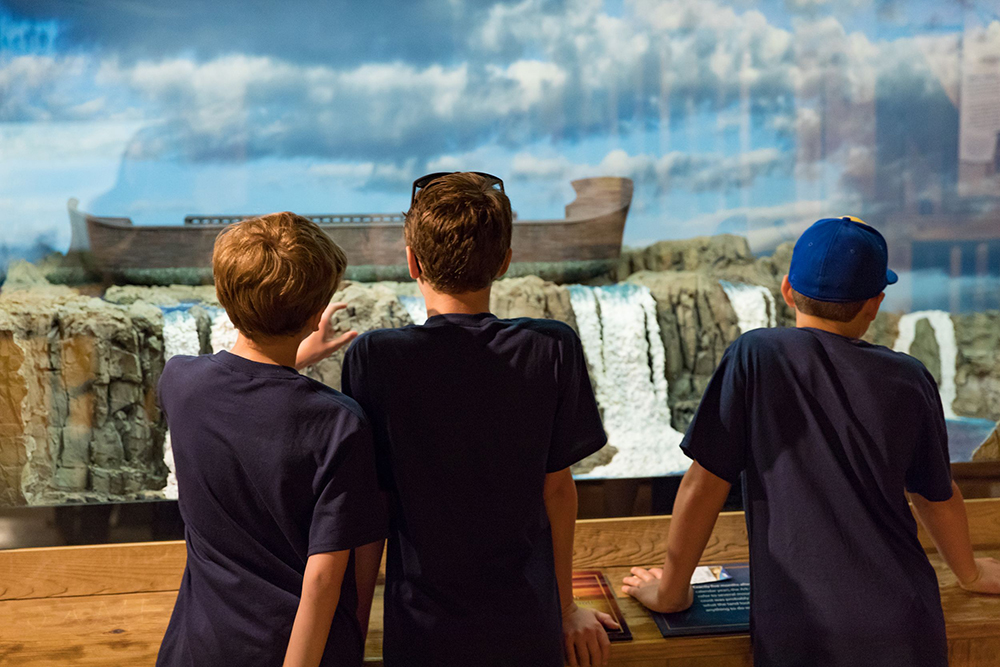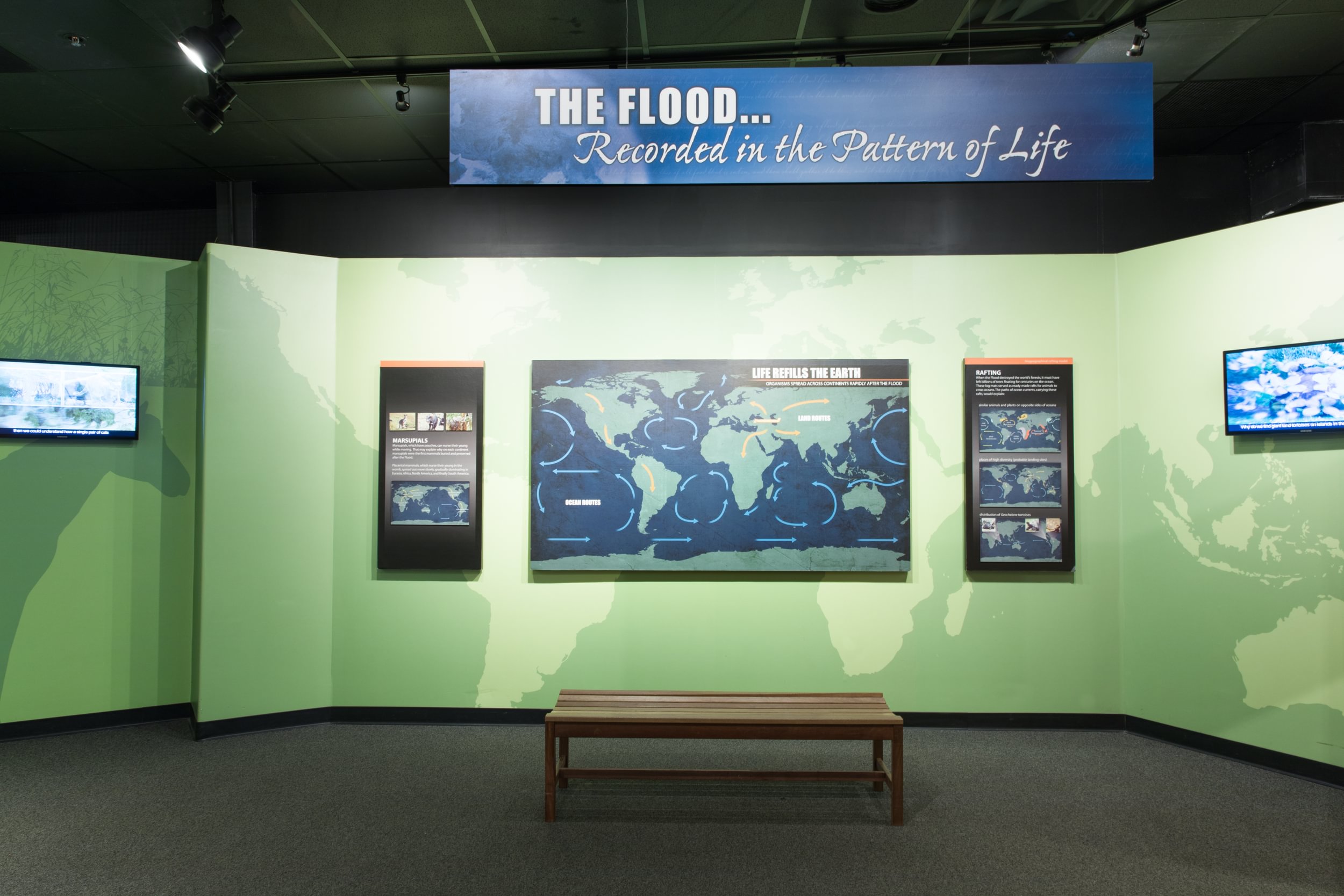Post-flood Spread of Animal Populations
by Creation Museum on October 24, 2024Along with humankind, every land-dependent, air-breathing bird and animal was destroyed during the global flood—except for those aboard the ark. When the floodwaters subsided, Noah’s family and the creatures preserved with them on the ark were left to repopulate the earth.

But some may wonder how animal life spread all over the world after the flood. Noah didn’t drop off certain animal kinds in strategic locations as the ark journeyed to its final resting place. No, all the ark’s occupants disembarked at one location—the mountains of Ararat. How then did they manage to quickly fill even the far reaches of the earth?
While many factors were involved, a few major considerations may help clear up confusion. From the Middle East, mainland Africa, Europe, and Asia would have been relatively easy to access by land as populations spread. Additional land bridges also existed during the ice age, granting passage to other landmasses only accessible by air or sea today.

Ocean routes are another important factor. Though some animals were perhaps carried from shore to shore by exploring humans, many could have traveled alone on natural rafts resulting from the billions of trees uprooted during the flood and left to float along ocean currents.
With just these few considerations, we begin to see how populations could have easily redistributed throughout the world, filling it as God intended.
To learn more, plan your trip to the Creation Museum at CreationMuseum.org/visit and be sure to visit the lower level!